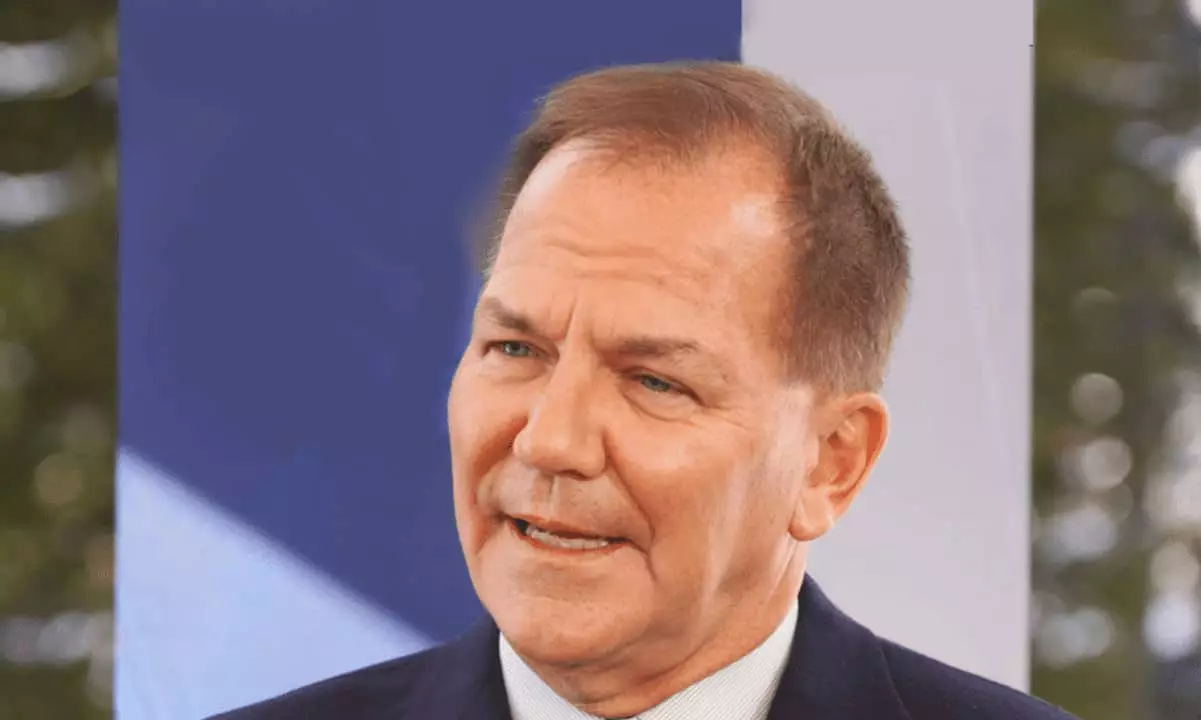In a recent interview with CNBC, billionaire investor Paul Tudor Jones articulated a controversial and compelling view on the future of the economy, stating, “all roads lead to inflation.” At its core, this claim underlines the economic turmoil many financial experts have been cautioning about in recent years. With inflation significantly impacting the cost of living, businesses, and government debt, Jones’s perspective aligns with mounting evidence suggesting that inflation is an inevitable outcome of current fiscal policies. As a seasoned trader and hedge fund manager, his insights carry weight yet also stir debates about the broader implications for investors and the average consumer.
Jones has signaled his confidence in gold and Bitcoin, asserting that commodities are “ridiculously under-owned.” His present investment strategy appears diversified, including a basket of assets ranging from precious metals to cryptocurrencies and stocks, while notably excluding fixed-income assets. This move could reflect a broader trend among investors looking for protection against what they perceive as increasingly uncertain economic conditions. It raises pertinent questions: Are traditional assets failing to serve their purpose? Should investors shift focus to alternative assets like Bitcoin and gold?
Responses to Jones’s declarations have quickly emerged on social media, with notable personalities weighing in. For instance, Bitcoin enthusiast Anthony Pompliano added a light-hearted touch by suggesting that Jones’s investment decisions were “probably nothing!” However, peer reactions showcase a more profound understanding of the implications behind Jones’s choices. The PiWhales account highlighted the significance of Jones’s long positions in Bitcoin and gold, implying that decentralized assets might gain even more traction amidst financial instability. This kind of digital discourse reflects a broader cultural shift where investors now engage in dialogue over assets historically relegated to traditional market spaces.
As Bitcoin approaches its peak once again, it serves as a reminder of the cryptocurrency’s volatility and potential. Leading up to Oct. 21, Bitcoin neared its all-time high but retreated to the $67,000 range, illustrating the ups and downs characteristic of cryptocurrencies. Simultaneously, gold’s impressive rise, now trading above $2,750 for the first time ever, coupled with silver reaching its highest point since 2012, reinforces a narrative where investors flee to perceived safe-haven assets in turbulent times.
A critical aspect of Tudor Jones’s analysis revolves around the alarming national debt situation in the U.S., currently standing at approximately $35.7 trillion. With a debt-to-GDP ratio exceeding 120%, many analysts warn that this heavy burden could significantly hamper the U.S. economy’s ability to weather financial crises. The implications of high public debt are grave; it could stifle economic growth, lead to increasing interest rates, and contribute to a cycle of financial turmoil. The link between national debt and inflation is vital, as this nexus could ultimately dictate the future financial landscape and asset valuations.
Moreover, Tudor Jones warned that regardless of central bank efforts to stabilize the economy, inflation will remain a challenge. As policymakers strive for a dovish monetary policy, the threat of inflation will loom large over their decisions. It becomes increasingly evident that inflation is not merely a transient phenomenon but a structural issue requiring careful navigation.
In stark contrast to Jones’s severe outlook, the International Monetary Fund (IMF) recently announced that they believe “the battle against inflation is largely won.” This seemingly optimistic statement, released on the same day as Jones’s interview, speaks to the complex nature of inflation and global economic recovery. The IMF’s claim is predicated on the decline in global inflation since the peak waves caused by the COVID-19 pandemic. However, everyday consumers are still grappling with rising costs—especially in essential areas like food and energy.
The divergence in perceptions regarding inflation underscores a critical dialogue within financial circles. While institutional bodies like the IMF provide morale-boosting perspectives, seasoned investors like Jones advocate for caution and repositioning toward decentralized and traditional assets that promise stability. This duality could provide a fertile ground for further economic discussion, pioneering a more aware investment culture moving forward.
Paul Tudor Jones’s insights challenge us to rethink our understanding of investment strategies in the context of escalating inflation and national debt. As he embraces alternative assets, both seasoned and novice investors are urged to reassess how they navigate the increasingly complicated financial landscape. Amid this unpredictability, the opportunity may arise for those willing to explore and adapt, leading to innovative investment approaches that may reap significant rewards. The road ahead remains uncertain, but understanding these complex dynamics is essential for success in the evolving economic environment.

